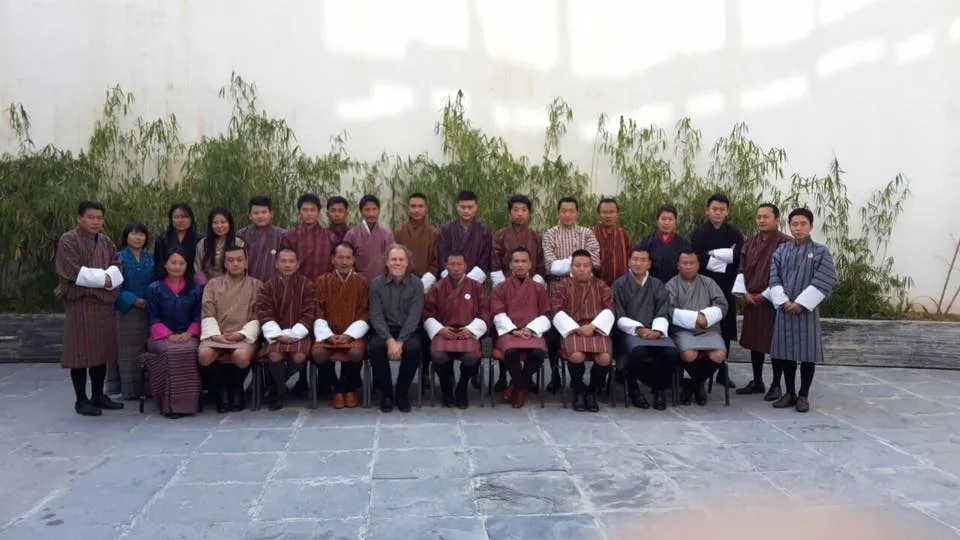BRIDGE Voter and Electoral Education Workshop for Election Commission of Bhutan Staff

As part of our ongoing commitment in Bhutan International IDEA together with the Election Commission of Bhutan (ECB) recently organized a four-day BRIDGE workshop on voter education in the capital of Thimphu.
The training was provided by democracy and elections expert Ross Attrill, former official at the Australian Electoral Commission and Sherab Zangpo, an official at the ECB and accredited BRIDGE trainer. Twenty election officials and representatives from Dzongkhagprovince and four from ECB headquarters participated in the training.
Three participants were women, which is a reflection of the low number of women holding coordinating positions at the ECB Dzongkhag offices.
The objective was to:
- Sensitize and motivate participants about probable content and methodologies for a voter education programme
- Consult with the group as to what they believe could be included in such a programme
- Begin the process of developing curriculum for a “heart to heart” community voter education.
During second day of the workshop participants were asked to develop a draft curriculum for community based “heart to heart” presentation at the grass root level. The presentation was to be consistent with the objectives outlined in the draft ECB Civic/Voter Education Strategy of 2015 and the two groups were assigned target groups in the general population. With one group focusing specifically on women and the other focusing on youth, both groups were told to base their content and timelines on providing information and motivating eligible voters ahead of the upcoming local elections scheduled for June 2016.
The groups then presented their curriculum in front of ECB Commissioner Aum Deki Pema. She advised elements of their draft programmes to be included in the newly drafted National Voter Education Programme for the June local elections.
The BRIDGE training has proven to be extremely effective and useful to find innovative ideas on how to reach the citizens and has shown that it can be of direct, practical use in the building of programmes and capacity in EMBs.
Attrill said the workshop was a great success in meeting all three of its objectives.
“The ECB officers finished the workshop feeling they knew a great deal more about their potential roles as voter education providers and of the methodologies and tools they can use to enhance and rewrite their community based voter education programmes,” he said.
“The participants also left the workshop with drafts of curriculum they can use in their Voter Education work.” As the draft curriculum was the participants' own work, this instilled a sense of ownership and participants felt that it reenergized their role as Dzongkhag electoral officers and their mission to provide of civic and voter education at the grass root level.
To follow up on the training many expressed a desire to learn more on drafting and being more involved in the voter education programme including additional training on evaluation and monitoring. In fact about 65 per cent of the participants expressed that topics on monitoring and evaluation needed more in-depth training.



